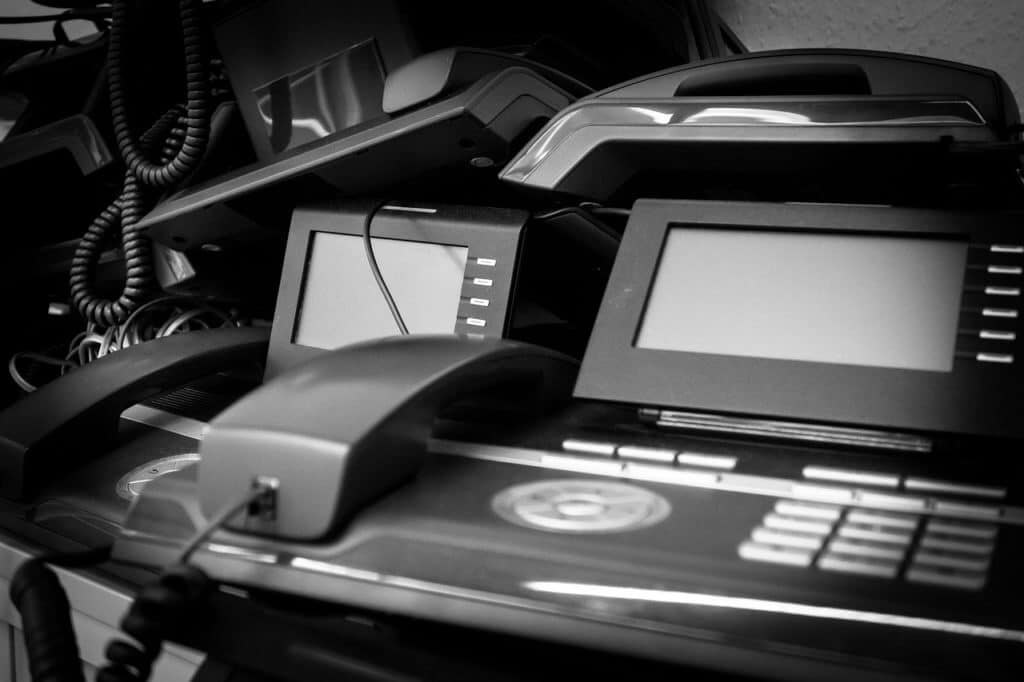Electronic items are part of our everyday lives and with technology being one of the fastest growing industries in the world, the amount of electrical waste produced each year is astonishing. E-Waste Day on 14th October 2021 presents an opportunity to learn about the importance of waste electrical and electronic equipment (WEEE) recycling and how we can improve the recycling rate of electrical items. Read on to discover three big brands which are making moves to dispose of electronic waste more responsibly and learn what to do with electrical waste.
How much e-waste does the UK produce?
Plastic waste has been at the top of the agenda recently when it comes to tackling the amount of waste we produce, but there is a bigger problem brewing. Did you know that it is actually WEEE which is the fastest growing waste stream in the world?
Think about it. How many times have you changed your mobile phone in the last five years? Or upgraded your wi-fi hub, tablet or laptop? Many are keen to own the latest gadgets but what do we do with our old electrical items? Unfortunately, more often than not they end up in landfill.
According to research by Material Focus, 1.45 million tonnes of electrical waste is produced in the UK annually. This costs the UK over £370 million each year in lost materials like gold, copper, aluminium and steel (source: BBC News). It’s important for us to retain and reuse these valuable materials as mining for them contributes to pollution, harms wildlife and fuels climate change. We need to put a stop to throwaway culture to break this damaging cycle. It starts with industry leaders who need to set an example and encourage consumers to re-use or recycle.
What are industry leaders doing to fight back against WEEE?
Amazon is the largest eCommerce company in the world with a revenue of $120,968 million worldwide in 2020 (source: Statista). Dominating the market, it’s re-assuring to see the online shopping retailer takes responsibility for recycling its own-brand electrical items. The Kindle is one of the most popular e-book devices in the world with readers using their devices more than ever before during the 2020 Coronavirus lockdown. Sales of eBooks were up 17% in the first half of 2020 as bookworms sought to escape the reality of a pandemic whilst physical stores were closed (source: The Guardian). With devices such as Kindles being used now more than ever before, it’s inevitable that e-waste from this stream will rise. Thankfully, Amazon offers a solution to ensure that old Kindles do not end up in landfill through its trade-in and recycle programme. Customers can trade-in their old Amazon devices in exchange for a gift card which they can put towards a new item. Amazon will either re-store and re-sell old devices or recycle them through the Amazon Recycling Program.
As mentioned, the materials which are found in electronic waste are incredibly valuable. This has been recognised by a leading tech company which is focusing its efforts on harvesting these materials from its old products to use in the making of new items, creating a more circular economy. Apple has developed a recycling robot named ‘Daisy’ to extract valuable raw materials from iPhones. Located at Apple’s plant in Texas, Daisy has been carefully dismantling iPhones and mining materials for recycling since 2017. Daisy can dismantle 200 phones per hour and extracts 14 materials including gold, nickel, titanium and lithium (source: 9to5Mac). This process is helping Apple achieve a more circular economy, keeping these incredibly valuable materials in circulation and out of landfill.
Recycling and making the move towards a more circular economy is key to reducing the amount of global e-waste produced but it’s vital to remember the importance of education too. The future of sustainable practices lies with the younger generation and that is why electronics corporation Panasonic has partnered with schools to deliver a programme which teaches students about the importance of recycling. As part of its flagship programme ‘Harit Umang – Joy of Green’, Panasonic partnered with 200 schools across Delhi-NCR region to deliver a programme which encourages the responsible disposal of electronic and plastic waste across school campuses. Panasonic has also donated recycling bins to schools, encouraging both students and teachers to recycle electronic waste responsibly (source: BWEducation).
How do I recycle e-waste in Devon and Cornwall?
Industry leaders are taking positive steps to reduce the amount of e-waste that is generated every year and now it’s your turn. Stop searching for ‘electronic waste disposal near me’ and recycle your old electrical items with DCW, your waste management and recycling company in Devon. We offer businesses in the South West a Zero to Landfill solution which means that all materials that can be recycled, are. Our service is fully compliant with current regulations with all WEEE collected and processed by DCW in the UK at licenced facilities. Electronic items we recycle include:
- Laptops and desktop computers
- Mobile phones and devices
- Hard drives
- Refrigerators
- Toasters
- Most other domestic and commercial electrical/electronic equipment
By using our fully compliant services, you can make a difference and reduce the volume of UK WEEE that heads to landfill this E-Waste Day. To find out more, call the team today on 01392 690193 or email sales@dcw.co.uk.
